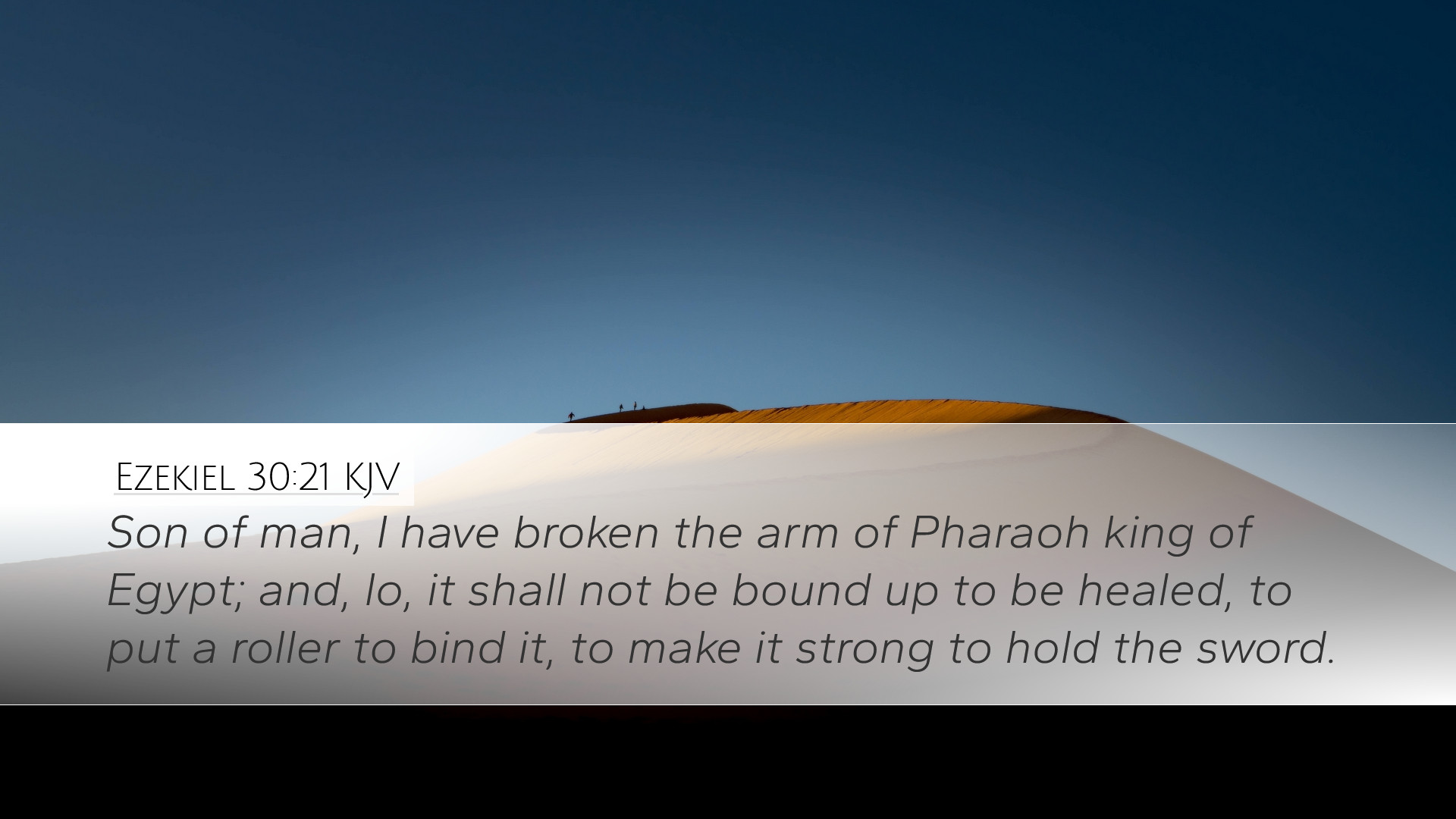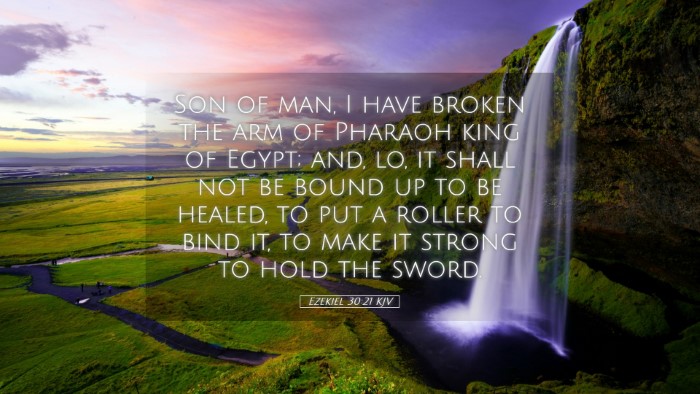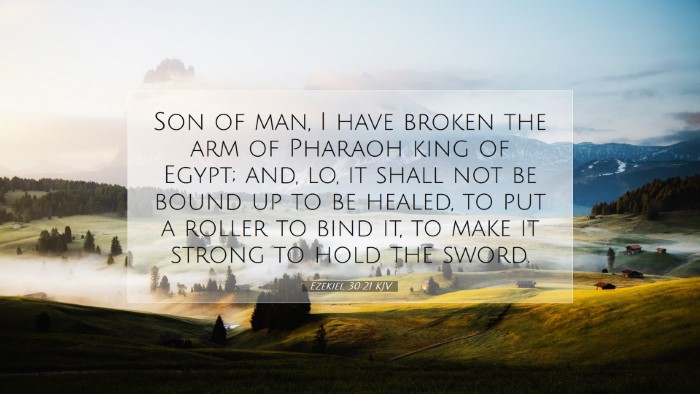Commentary on Ezekiel 30:21
Verse Text: "Son of man, I have broken the arm of Pharaoh king of Egypt; and, lo, it shall not be bound up to be healed, neither shall it be rolled up for it to be strong to hold the sword."
Introduction
This verse is a proclamation from God to the Prophet Ezekiel regarding the fate of Pharaoh and Egypt. It symbolizes the divine judgment upon a nation that has relied on its own strength and might. The implications of this prophecy extend beyond mere physical warfare; it signifies the spiritual deterioration and inevitable downfall of those who oppose God's purpose.
Exegesis of the Text
The phrase "I have broken the arm of Pharaoh" symbolizes the complete incapacitation of Pharaoh’s power. In biblical terms, the "arm" represents strength and might, confirming the theme of divine judgment against those who exalt themselves. The broken arm signifies not just a physical defeat but a loss of authority and the inability to defend or save oneself or one's people.
Theological Significance
Understanding this verse requires us to recognize the broader themes at play in the Book of Ezekiel. The acts of God regarding nations and kings are not merely historical recounts; they serve as powerful reminders of God sovereignty over human affairs.
Commentary Insights
Matthew Henry's Commentary
According to Matthew Henry, this broken arm of Pharaoh illustrates the folly of trusting in human strength. He emphasizes that Egypt's reliance on its own might and alliances, rather than on God, has led to its downfall. Pharaoh's inability to "bind up" his wounds symbolizes the futility of recovery when facing divine judgment. Henry notes that God’s declaration here serves both as a warning and a proclamation of hope for His people, affirming that God can bring low the proud.
Albert Barnes' Notes on the Bible
Barnes elaborates that the imagery of a broken arm extends beyond Pharaoh to encompass the entire nation of Egypt. He draws parallels to the consequences of pride and arrogance, highlighting the message that the Lord will not allow the wicked to stand. Barnes further points out that this prophetic declaration aligns with the overarching narrative of God's supremacy over nations, serving as a potent reminder of the eventual triumph of divine justice.
Adam Clarke's Commentary
Adam Clarke offers a detailed analysis, pointing out that in a more literal sense, the physical strength of Egypt will be shattered. He suggests that the prophecy is not only a foreshadowing of military defeat but also depicts the moral and spiritual degradation of the Egyptian people. Clarke stresses the theme that nations must acknowledge God's authority, lest they suffer similar consequences.
Historical Context
During the period of Ezekiel’s prophecy, Egypt was at its zenith of power and influence. Yet, despite its seemingly robust military capabilities, the nation was ultimately weak against the will of God. This verse captures a pivotal moment where human arrogance meets divine intervention, resulting in a paradigm shift for both Israel and Egypt.
Practical Applications
- Reflection on Power: This text invites believers to reflect on where they derive their strength and security. Just as Egypt trusted in its own power, individuals today may place their trust in worldly achievements rather than in God.
- Understanding Judgment: The passage serves as a warning against pride and self-reliance. Those in leadership, whether in the church or in secular roles, must remain humble and recognize that all authority is derived from God.
- Encouragement for the Oppressed: For the Israelites, this prophecy reassured them that God was active in their history, actively dismantling their oppressors. It encourages the faithful that current trials may ultimately turn in their favor through God’s judgment on the wicked.
Conclusion
Ezekiel 30:21 encapsulates a powerful message regarding the nature of divine authority, the futility of human strength, and the inevitability of God's justice. Through the prophetic words directed to Pharaoh, believers are reminded not only of the historical context of judgment but also of the broader spiritual truths that resonate throughout Scripture. In studying this passage, pastors, students, and scholars alike are urged to draw connections between these ancient texts and their contemporary applications, continually seeking to align themselves with God's purposes.


